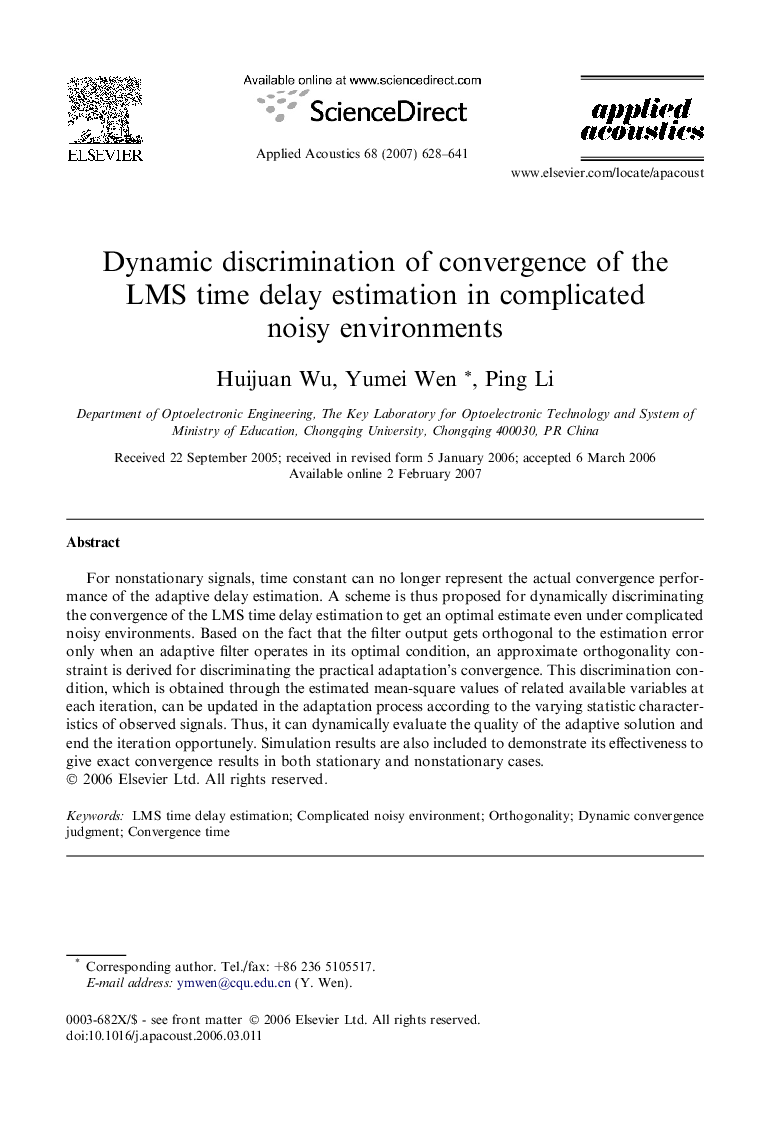| Article ID | Journal | Published Year | Pages | File Type |
|---|---|---|---|---|
| 755033 | Applied Acoustics | 2007 | 14 Pages |
For nonstationary signals, time constant can no longer represent the actual convergence performance of the adaptive delay estimation. A scheme is thus proposed for dynamically discriminating the convergence of the LMS time delay estimation to get an optimal estimate even under complicated noisy environments. Based on the fact that the filter output gets orthogonal to the estimation error only when an adaptive filter operates in its optimal condition, an approximate orthogonality constraint is derived for discriminating the practical adaptation’s convergence. This discrimination condition, which is obtained through the estimated mean-square values of related available variables at each iteration, can be updated in the adaptation process according to the varying statistic characteristics of observed signals. Thus, it can dynamically evaluate the quality of the adaptive solution and end the iteration opportunely. Simulation results are also included to demonstrate its effectiveness to give exact convergence results in both stationary and nonstationary cases.
